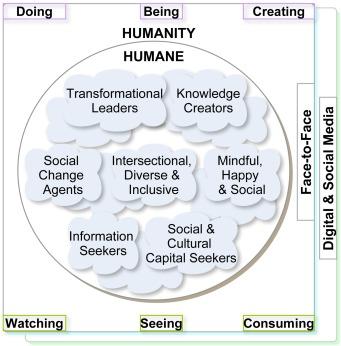Top skills and Qualifications Required too Become a Marketing Communications Specialist in Education
Introduction
The field of education technology has witnessed rapid growth in recent years. As universities, colleges, and schools increasingly embrace digital platforms and innovative learning solutions, the demand for skilled marketing communications specialists in education has soared. Whether you are an experienced communicator or a job seeker eager to work in education technology, understanding the top skills and qualifications is crucial for securing your dream role. This extensive guide explores the essential requirements, benefits, and practical tips to help you launch or advance your career as a marketing communications specialist in the dynamic education sector.
Why marketing Communications is Vital in Education technology
Effective marketing communications specialists play a pivotal role in shaping the image and outreach of educational institutions. They connect schools with students, parents, educators, and the broader community, ensuring that the value and impact of education technology programs are effectively communicated. With competition among universities, colleges, and edtech providers intensifying, proficient marketing communications professionals are more essential than ever.
Key responsibilities of a Marketing Communications Specialist in Education
- Developing and executing integrated marketing campaigns
- Creating and distributing engaging content across digital and print channels
- Managing social media presence and online reputation
- Organizing events, webinars, and open days
- Supporting brand progress and crisis communication strategies
- Collaborating with faculty, IT teams, and administration to align communication efforts with institutional goals
- Monitoring and analyzing campaign performance using data-driven tools
Top Skills Required to Become a marketing Communications Specialist in Education
1.Exceptional Written and Verbal Communication
communication is at the heart of this role. Marketing communications specialists in education must craft clear, concise, and compelling messages tailored to various audiences such as students, educators, parents, and external partners. Strong editing and proofreading skills ensure the accuracy and professionalism of all materials.
2. Digital Marketing Proficiency
In today’s education landscape, digital marketing skills are indispensable. A successful marketing communications specialist should be well-versed in:
- Content management systems (CMS) for website updates
- Search engine optimization (SEO) to boost online visibility
- Email marketing platforms for targeted communications
- Social media advertising and community management
- Basic graphic design and video editing
3. Strategic Thinking and Campaign Planning
The ability to develop, implement, and evaluate strategic communication plans is essential. This includes aligning messaging with institutional objectives, scheduling campaigns for optimal impact, and adjusting tactics based on analytics and feedback.
4. Analytical and Data-Driven Mindset
Measuring the effectiveness of marketing efforts is crucial. Marketing communications specialists leverage analytics tools, such as google Analytics and social media insights, to assess engagement and inform future strategies.
5. Creativity and Storytelling
Innovative thinking and an aptitude for storytelling enable professionals to create captivating campaigns that resonate with diverse audiences, highlight unique educational offerings, and foster meaningful connections.
6. Project Management Skills
coordinating multiple projects and campaigns together requires strong organizational skills, attention to detail, and the ability to prioritize tasks to meet deadlines.
7. Collaboration and Teamwork
Working closely with faculty, staff, administrators, and othre departments is a daily occurrence. Building strong interpersonal relationships allows for seamless collaboration and the effective execution of communication initiatives.
Essential Qualifications for Marketing Communications Specialists in education
- Bachelor’s Degree: A degree in marketing, communications, public relations, English, education, or a related field is typically required.
- Relevant Certifications: Professional certifications such as Google Analytics,HubSpot Content Marketing,or Hootsuite Social Marketing can enhance your profile.
- Work Experience: previous experience in marketing, communications, or public relations—ideally within education technology or an educational institution—demonstrates your capability to adapt to the unique demands of this sector.
- Portfolio of Work: A portfolio showcasing campaigns, content, and projects you’ve managed is highly valued by employers.
- Technical Skills: Knowledge of marketing automation tools, email platforms, CRM systems, and analytics software is a important advantage.
Benefits of Becoming a Marketing Communications Specialist in education
- Impactful Work: Contribute to the advancement of education and help shape student success stories by promoting innovative learning technologies.
- Diverse Opportunities: Work in universities, colleges, schools, or edtech companies, supporting a range of educational initiatives.
- Lifelong Learning: The education sector encourages continuous professional development, keeping your skills and knowledge current.
- job Stability: As education technology evolves, the need for skilled marketing communicators continues to grow.
- Networking: Collaborate with professionals across disciplines, expanding your network within education and beyond.
Practical Tips to Build Your Career as a Marketing Communications Specialist in Education
1. Stay Updated on EdTech Trends
Regularly follow updates in education technology and trends in digital communication. Subscribe to industry newsletters, attend webinars, or participate in relevant online forums.
2. Enhance Your Digital Portfolio
Maintain an up-to-date portfolio that highlights your writing, campaign strategies, and digital marketing projects, particularly those with measurable results.
3. Seek Internship or Volunteer Opportunities
Demonstrating real-world experience is invaluable. Consider internships or volunteer roles in educational settings to build your resume and gain hands-on exposure.
4. Develop Technical Skills
Familiarize yourself with popular digital marketing tools, CRM software, and analytics platforms to boost your employability.
5. Network with Education Professionals
Attend industry conferences and join professional associations focused on education and marketing communications to forge meaningful professional connections.
6. Tailor Your Applications
Customize your cover letters and resumes to reflect the key skills and experiences sought by each institution. Highlight your expertise in education-focused marketing and communication.
Conclusion
Becoming a marketing communications specialist in education is a rewarding career path that combines creativity,strategy,and a passion for impactful storytelling. By mastering the core skills and qualifications outlined in this guide, and by actively engaging in professional development, you can position yourself as a sought-after expert in the evolving landscape of education technology. Whether you aspire to work at a university, college, or school, your role as a marketing communications specialist will be vital in shaping the future of learning through meaningful engagement and strategic communication.

